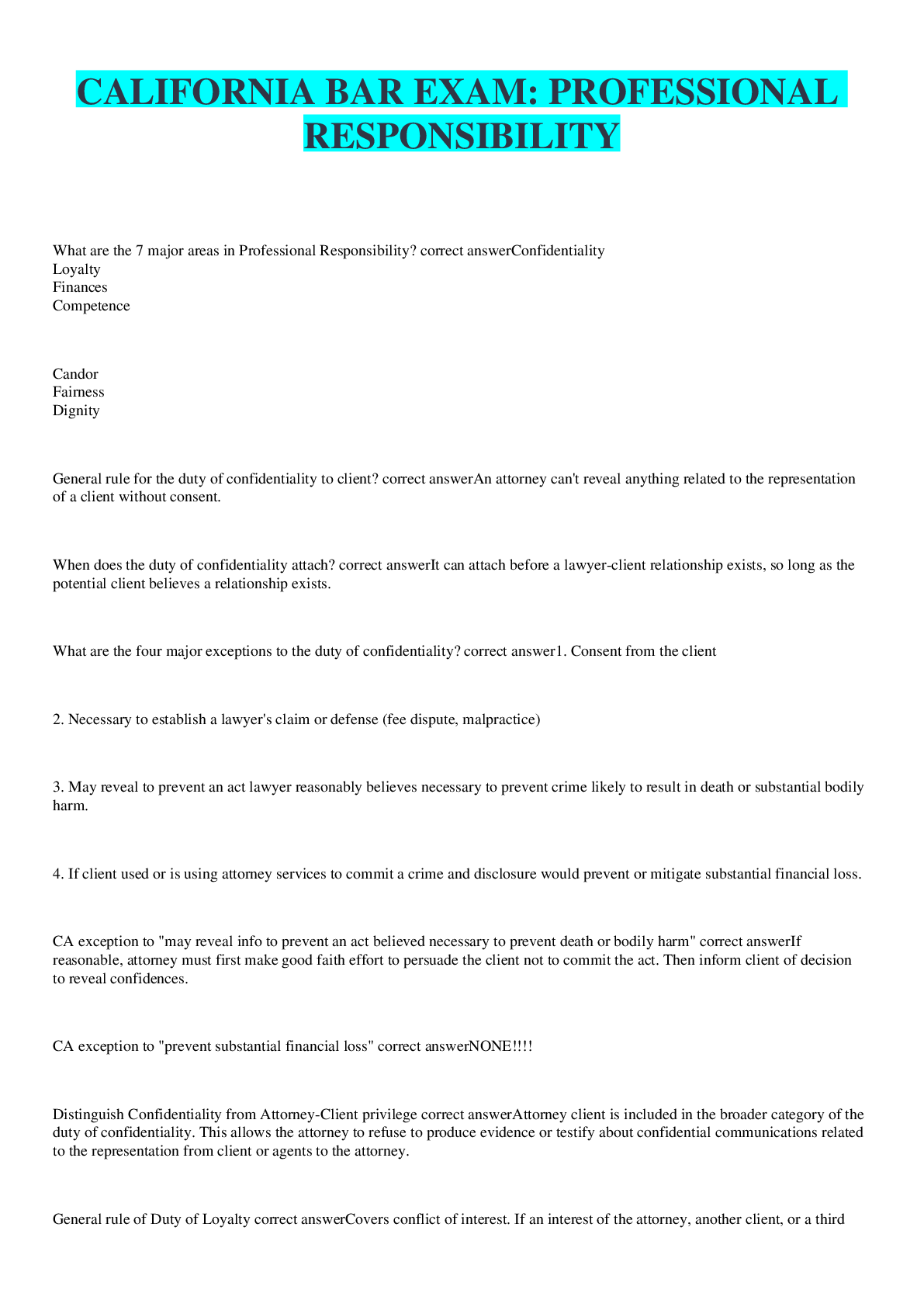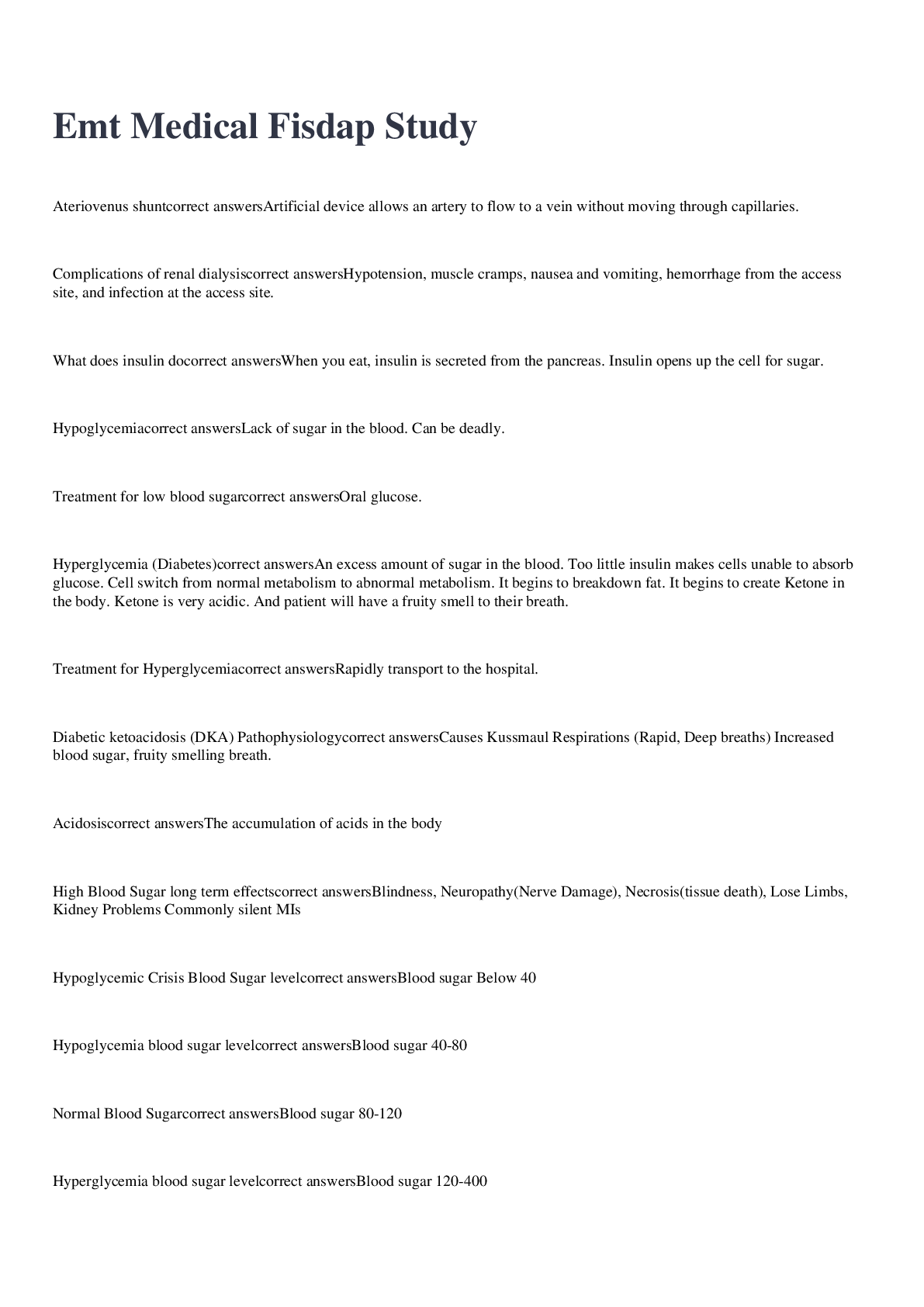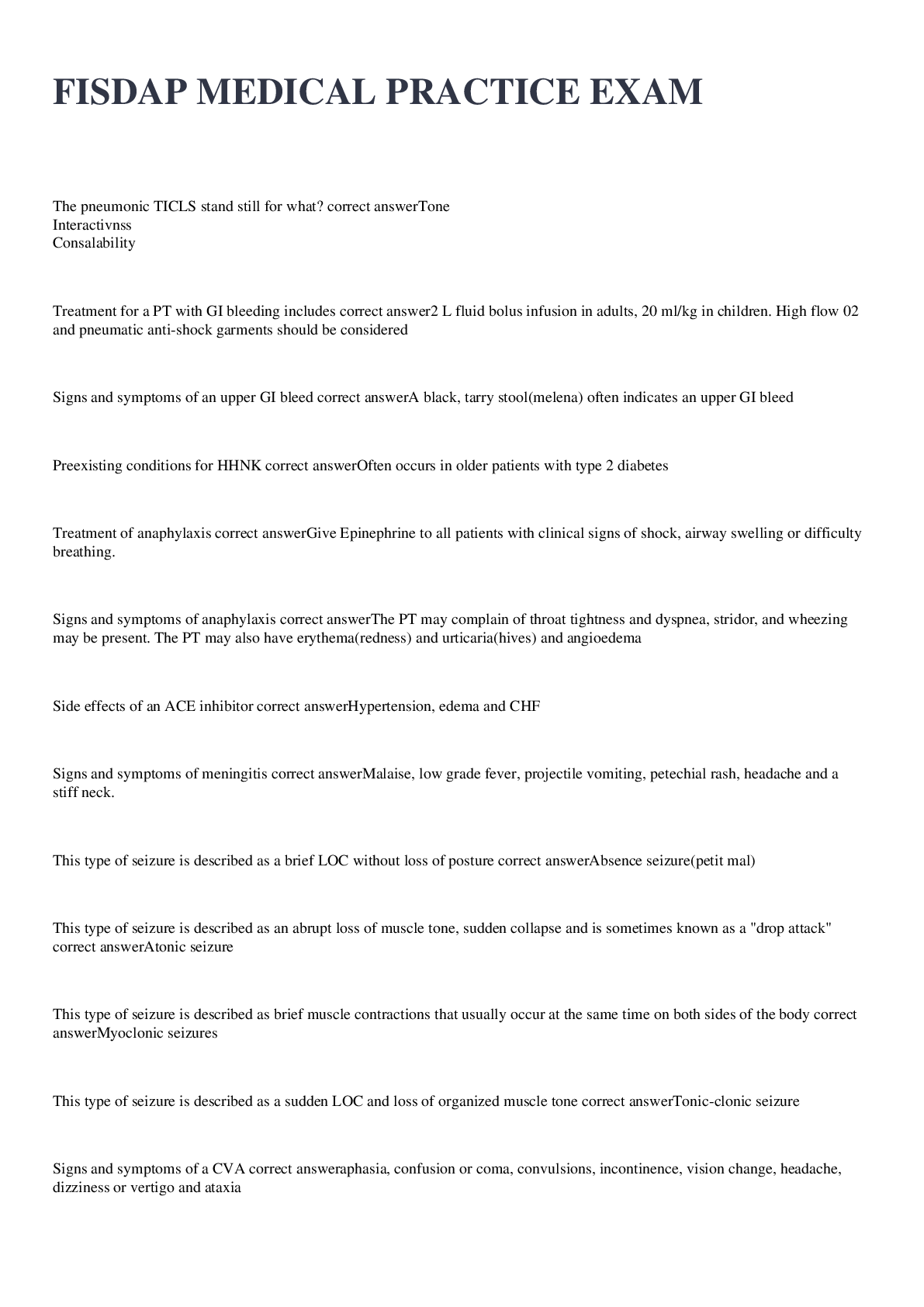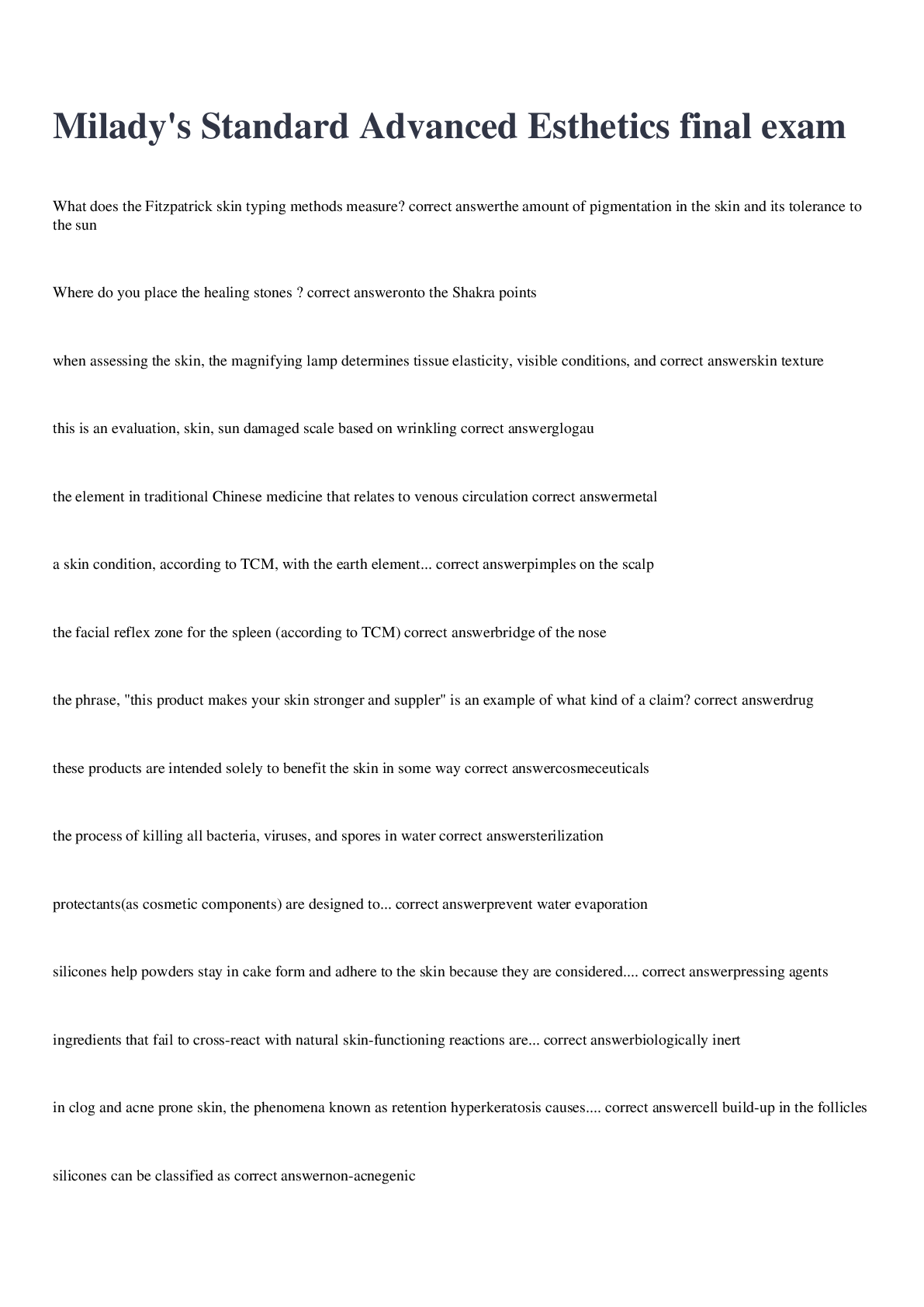California Bar Exam: Professional Responsibility(2022/2023)graded A
Document Content and Description Below
What are the 7 major areas in Professional Responsibility? Confidentiality Loyalty Finances Competence Candor Fairness Dignity General rule for the duty of confidentiality to client? ... An attorney can't reveal anything related to the representation of a client without consent. When does the duty of confidentiality attach? It can attach before a lawyer-client relationship exists, so long as the potential client believes a relationship exists. What are the four major exceptions to the duty of confidentiality? 1. Consent from the client 2. Necessary to establish a lawyer's claim or defense (fee dispute, malpractice) 3. May reveal to prevent an act lawyer reasonably believes necessary to prevent crime likely to result in death or substantial bodily harm. 4. If client used or is using attorney services to commit a crime and disclosure would prevent or mitigate substantial financial loss. CA exception to "may reveal info to prevent an act believed necessary to prevent death or bodily harm" If reasonable, attorney must first make good faith effort to persuade the client not to commit the act. Then inform client of decision to reveal confidences. CA exception to "prevent substantial financial loss" NONE!!!! Distinguish Confidentiality from Attorney-Client privilege Attorney client is included in the broader category of the duty of confidentiality. This allows the attorney to refuse to produce evidence or testify about confidential communications related to the representation from client or agents to the attorney. General rule of Duty of Loyalty Covers conflict of interest. If an interest of the attorney, another client, or a third party materially limits or is adverse to loyal representation, the attorney has a conflict of interest. Potential v. Actual Conflict A potential conflict is one that has the possibility of occurring in the future. An actual conflict is one that actual is occurring at time of representation. What is an imputed disqualification? The attorney and all members of the attorney's firm share each other conflicts. If there is a conflict, what rule applies? The attorney must not take on representation unless: 1. Attorney objectively and reasonably believe he can represent everyone effectively despite potential and actual conflict; AND 2. Inform each affected client (which could raise confidentiality issues; AND 3. Client consents, confirmed in writing [Show More]
Last updated: 2 years ago
Preview 1 out of 8 pages

Buy this document to get the full access instantly
Instant Download Access after purchase
Buy NowInstant download
We Accept:

Reviews( 0 )
$14.00
Can't find what you want? Try our AI powered Search
Document information
Connected school, study & course
About the document
Uploaded On
Oct 14, 2022
Number of pages
8
Written in
Additional information
This document has been written for:
Uploaded
Oct 14, 2022
Downloads
0
Views
47














